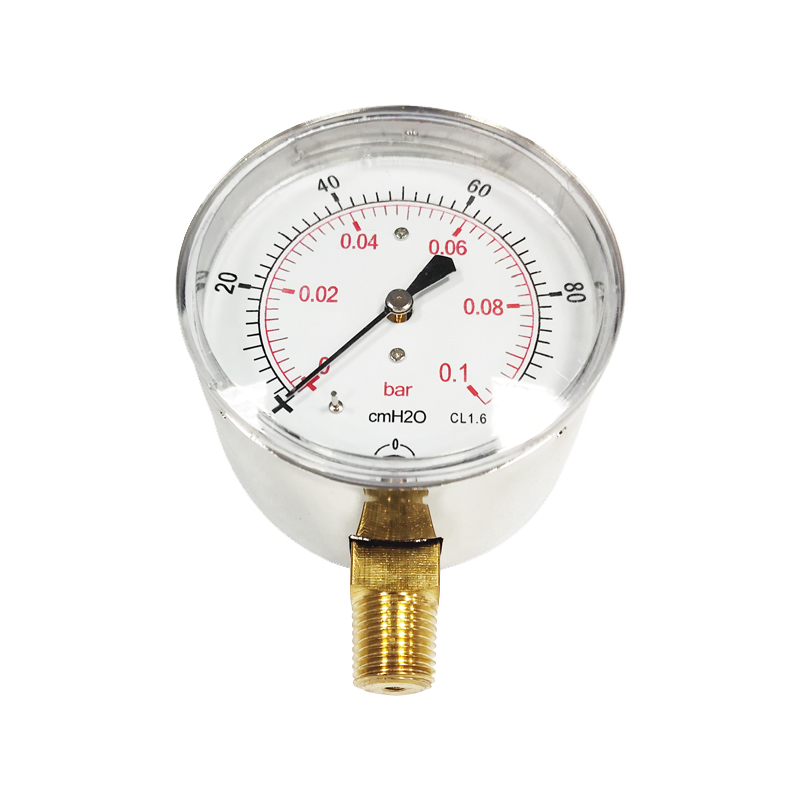
Dec . 10, 2024 01:48 Back to list
Diaphragm Pressure Gauge Manufacturers and Their Innovative Solutions for Precision Measurement
Understanding Diaphragm Pressure Gauge Technology A Deep Dive into Its Importance and Applications
When it comes to measuring pressure in various industrial applications, accuracy and reliability are paramount. Among the plethora of pressure measuring devices available, diaphragm pressure gauges stand out for their unique design and functionality. This article explores the workings of diaphragm pressure gauges, their advantages, applications, and the leading companies in this field.
What is a Diaphragm Pressure Gauge?
A diaphragm pressure gauge is a type of pressure gauge that utilizes a flexible diaphragm to measure the pressure of liquids and gases. The principle behind its operation is rather straightforward. The diaphragm, typically made from materials like stainless steel or chemically resistant alloys, responds to pressure changes by deflecting. This deflection is then translated into a readable measurement, often displayed on a dial.
How Does It Work?
The basic structure of a diaphragm gauge comprises a sealed casing that houses a flexible diaphragm. When pressure is applied, the diaphragm bends in response to the force exerted by the fluid or gas being measured. This movement is connected to a mechanical linkage that drives a needle on a calibrated dial, giving a direct reading of the pressure.
In many designs, the diaphragm is enclosed in a chamber that is either open to the atmosphere or connected to the system whose pressure is being measured. The sensitivity and accuracy of these gauges are greatly influenced by the thickness and material of the diaphragm, as well as the specific design used.
Advantages of Diaphragm Pressure Gauges
1. Accuracy One of the most significant benefits of diaphragm pressure gauges is their high accuracy, which is vital in environments where precise pressure readings are necessary. 2. Durability Designed to withstand harsh conditions, diaphragm gauges are often resistant to corrosion and wear, extending their lifespan even in challenging environments. 3. Versatility These gauges can be used for a wide array of applications, including oil and gas, chemical processing, and food and beverage industries, adapting to different medium types, including viscous and corrosive liquids.
4. Compact Design Many diaphragm pressure gauges are compact, making them ideal for installations where space is at a premium.
Applications
diaphragm pressure gauge company

Diaphragm pressure gauges find their utility across various sectors
- Manufacturing In manufacturing processes, controlling the pressure of gases and liquids can significantly impact product quality. Diaphragm gauges help maintain desired pressure levels throughout. - Oil and Gas In exploration and drilling operations, accurate pressure readings are essential for safety and efficiency. Diaphragm gauges are commonly used in these settings due to their robustness. - Pharmaceuticals The pharmaceutical industry demands high standards of cleanliness and accuracy. Using diaphragm gauges meets these stringent criteria as they can be designed to be hygienic and easy to clean.
- HVAC Systems Diaphragm gauges are employed in heating, ventilation, and air conditioning systems to monitor and regulate the pressure within the systems, ensuring optimal performance.
Leading Companies in the Diaphragm Pressure Gauge Market
Several companies have made significant contributions to the diaphragm pressure gauge market, driving innovation and quality. Some of the prominent names include
- WIKA Instruments Known for its precision instruments, WIKA designs and manufactures a range of diaphragm pressure gauges suitable for numerous industrial applications.
- Ashcroft A leading manufacturer with a reputation for high-quality pressure measurement solutions, Ashcroft offers diaphragm gauges that stand the test of time.
- OMEGA Engineering Renowned for pioneering measurement technologies, OMEGA's diaphragm gauges include advanced features that enhance reliability and accuracy.
- KROHNE This company specializes in innovative measurement solutions, including diaphragm pressure gauges that are specifically designed for process engineering.
Conclusion
In conclusion, diaphragm pressure gauges play a crucial role in a myriad of industries, offering accuracy, durability, and versatility in pressure measurement. Their ability to function effectively in challenging environments makes them an invaluable asset for manufacturers and process engineers alike. As technology continues to advance, we can expect further innovations that enhance the capabilities of these instruments, demonstrating their ongoing relevance and importance in the industrial landscape.
-
High-Precision 5 Valve Manifold Differential Pressure Gauge Suppliers
NewsApr.29,2025
-
High-Precision Diaphragm Vacuum Pressure Gauges Manufacturers & Quotes
NewsApr.29,2025
-
Omega Differential Pressure Gauges High Accuracy & Durability
NewsApr.28,2025
-
Low Pressure Differential Pressure Gauges Precision Solutions & Quotes
NewsApr.28,2025
-
Digital Diaphragm Pressure Gaauge Precision Measurement & OEM Quotes
NewsApr.28,2025
-
Differential Pressure Gauge China Price High-Accuracy & Best Quotes
NewsApr.28,2025
